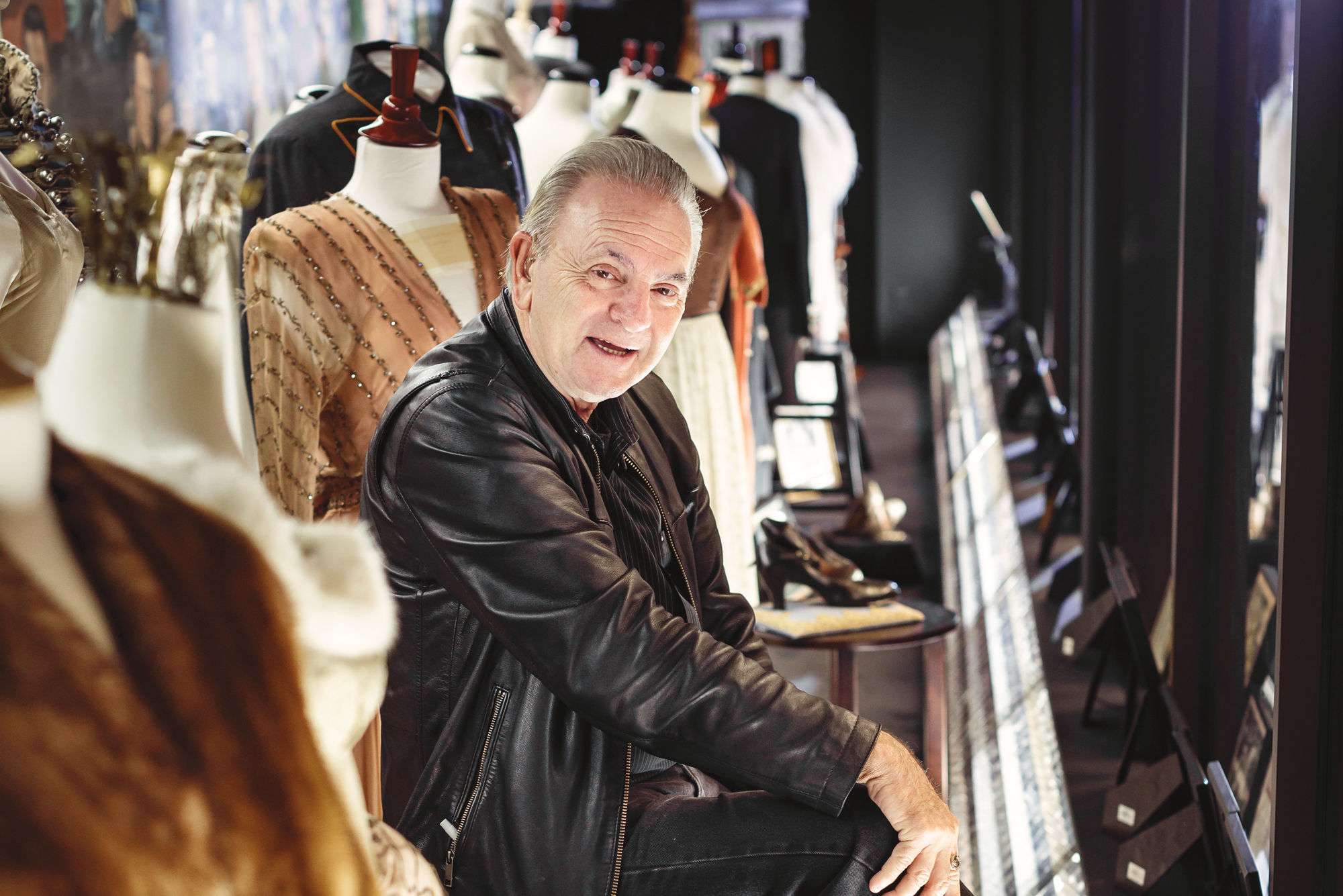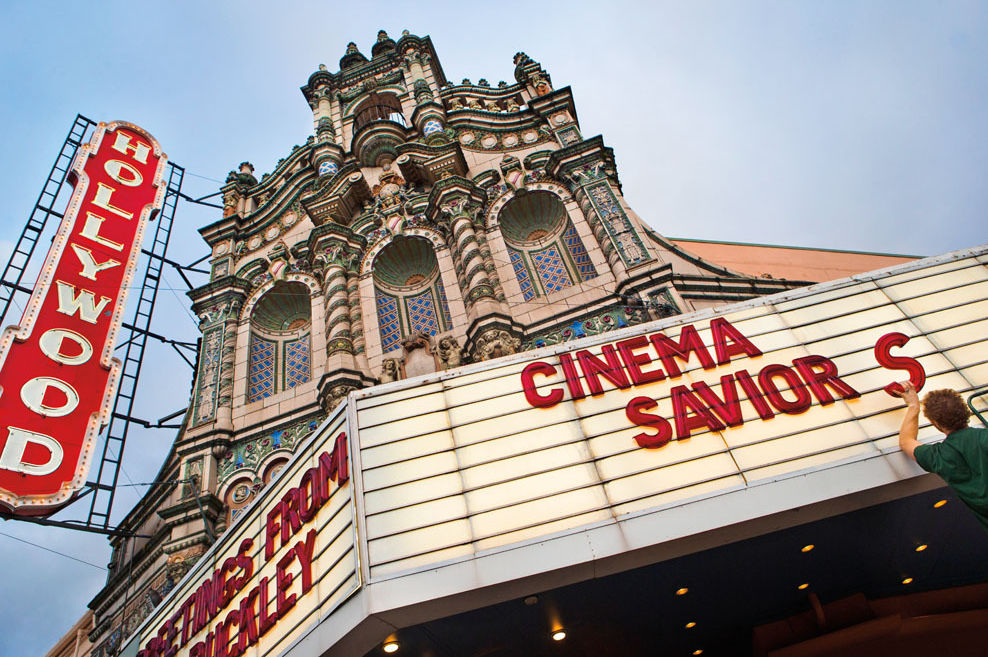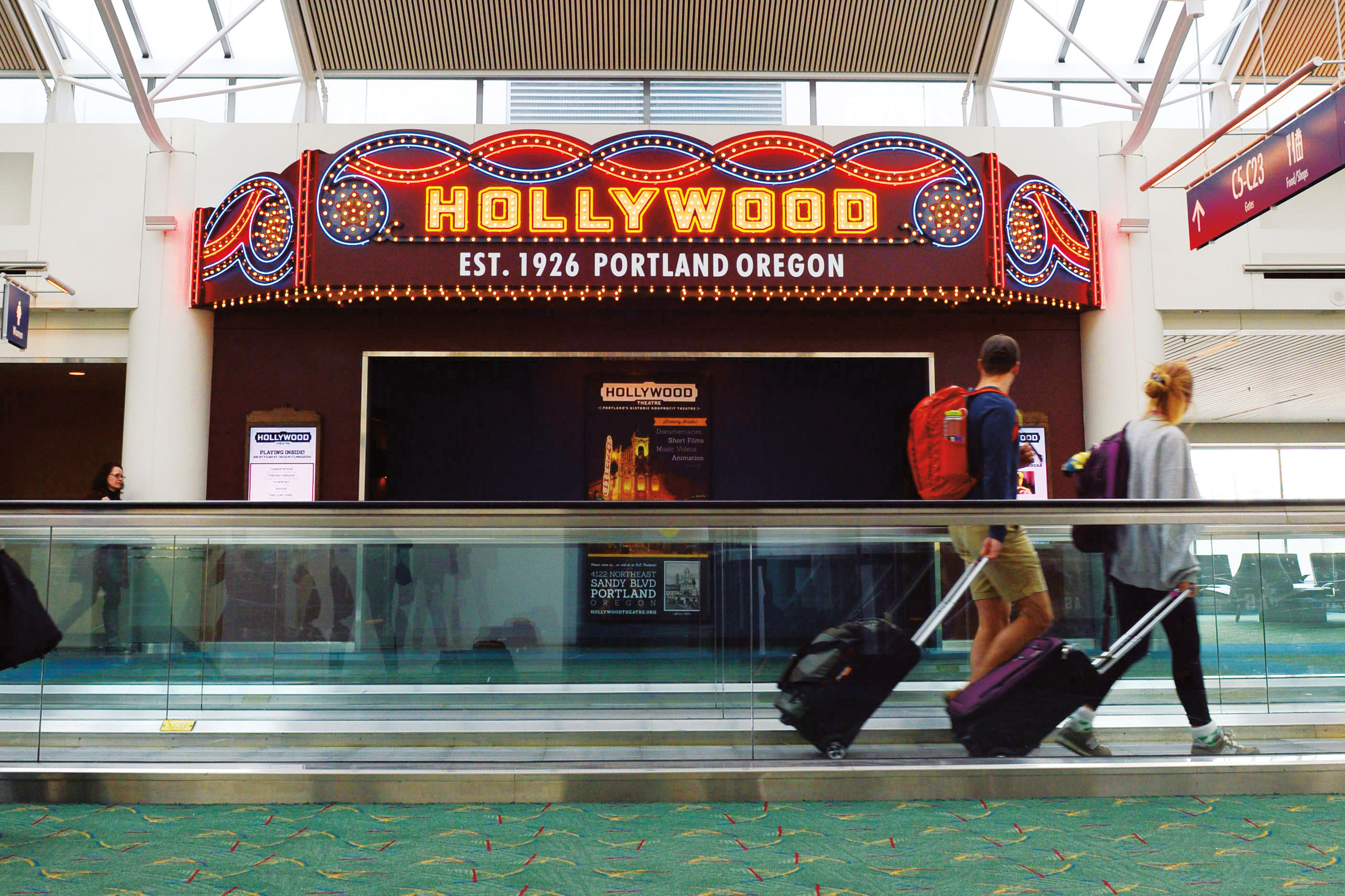Hollywood Theatre to Buy Movie Madness
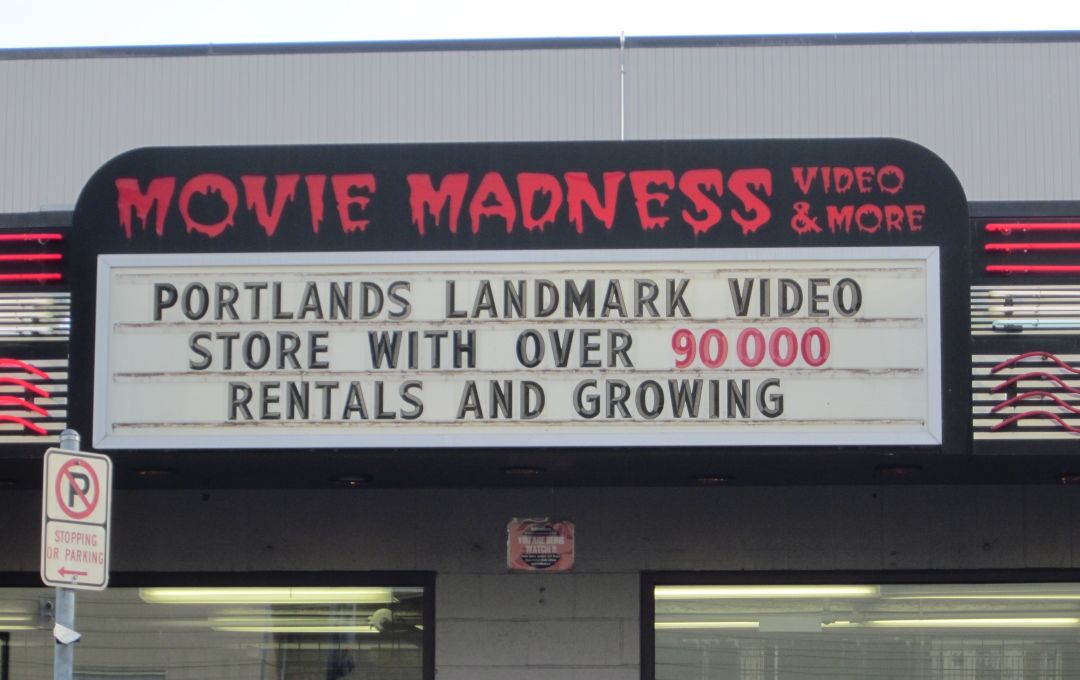
Mike Clark’s Movie Madness Video & More on SE Belmont Street
Image: Margaret Seiler
The Hollywood Theatre is buying Movie Madness, the 26-year-old Portland landmark on SE Belmont Street that’s part video store, part film industry museum. The nonprofit launched a $250,000 Kickstarter campaign on Wednesday, October 11 to help fund the purchase.
Saying he’s ready to retire, Movie Madness founder and owner Mike Clark approached the Hollywood earlier this year about bringing the video store under the umbrella of its nonprofit. “He’s a fan of the Hollywood and thought we’d be the perfect place to do it,” says Hollywood Theatre executive director Doug Whyte. “We’re all fans of Movie Madness, and we started to try to figure out a way to make it happen.”
In addition to the Kickstarter, Whyte says the Hollywood has applied for grants that might help fund the move. “A lot of people might look at us like we’re crazy: ‘You’re going to do what? You’re going to take over a video store?’” says Whyte.
Other video stores around the country have explored nonprofit status. Whyte points to Seattle’s Scarecrow Video, which became a nonprofit in 2014. (Its board includes former video store clerks and people affiliated with the nearby nonprofit Grand Illusion Cinema.) Santa Monica’s three-decade-old Vidiots is now a foundation whose mission is, in part, “preserving and providing access to our diverse and growing library of over 50,000 titles”—though the collection is currently in storage. Movie Madness claims more than 90,000, sorted by genre, era, actor, or creator into such categories as “Rampaging Teenagers” and “The Coreys.” Says Mike Clark: “It would take a couple of eternities to watch everything there.”
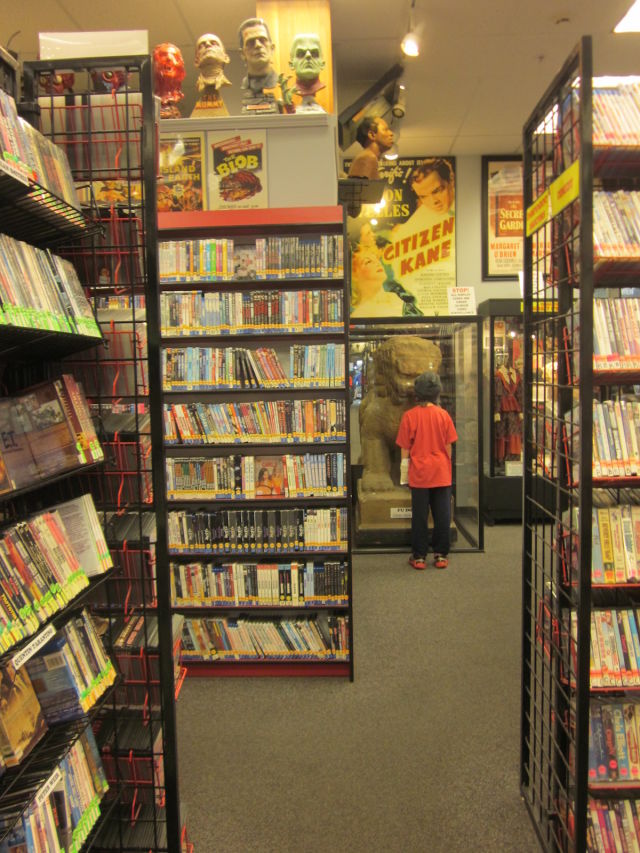
Movie Madness is part DVD and VHS rental store, part film museum.
Image: Margaret Seiler
“If you really love film and you want to dive deep and explore it, your options are really limited now, unless you come to a place like Movie Madness,” Whyte says. “We feel passionately about saving that collection and keeping it available to the public.”
Plans are for the video store to stay where it is, with most things remaining the same—but with the possible addition of beer and wine, a screening room for niche titles and community discussions, and crossover benefits with the Hollywood’s membership program. “The Hollywood and I are both on the same page,” Clark says. “We share a vision of the direction we’d like to see the business take.”
While the movie theater relies on a mix of paid staff and volunteers, Whyte says there’s no plan to change the current staffing at Movie Madness, and that no employees will be laid off due to the sale. “Down the line, we’ll see how the business is running and what’s working, and I’m sure we’ll find a place for volunteers there,” he says, noting that the nonprofit might involve volunteers in a beefed-up customer service program. “What really makes a video store special is getting recommendations from the people who work there,” he notes, and volunteers could add to that group and enhance what’s already a unique experience in Portland.
Movie Madness began in 1991, when Clark, a Portland native, moved home after working in the film industry in Southern California to open a video store that would have everything he wanted. Over the years the store’s footprint grew, and Clark eventually bought its building at 4320 SE Belmont St, filling it not with just VHS tapes and, later, DVDs, but with decades’ worth of film artifacts memorabilia, from a creature head used in Aliens to a dress Julie Andrews wore to sing “Do-re-mi” in The Sound of Music. A permanent fixture on best-of lists and itineraries for out-of-town visitors, Movie Madness has so far survived the advent of Netflix and streaming services, unlike most of its peers.
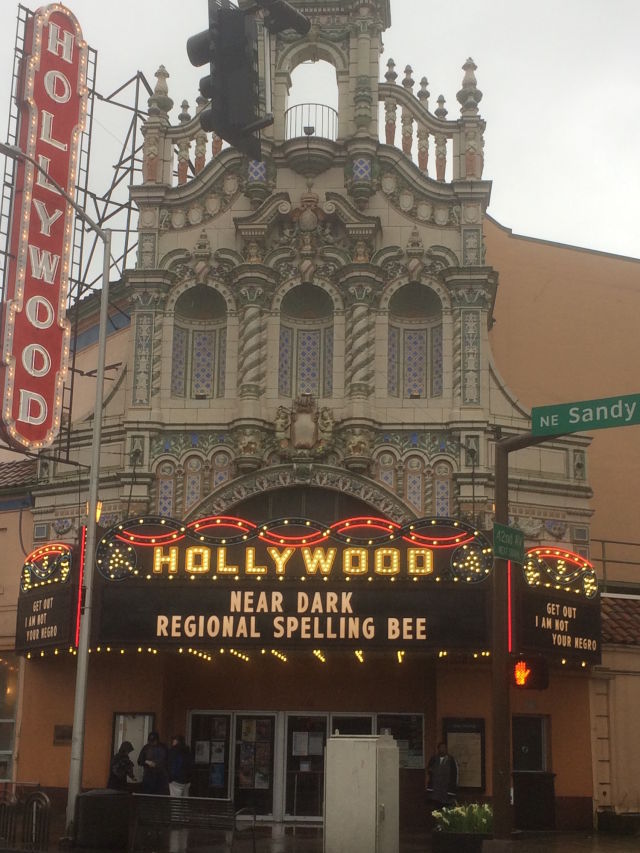
A 2012 Kickstarter campaign for the Hollywood Theatre’s new marquee exceeded its goal of $55,000.
Image: Margaret Seiler
Preserving aging modes of film viewing is not a new part of the Hollywood’s mission. The theater opened in 1926 and showed both silent films and—at the time—newfangled talkies. When the nonprofit Film Action Oregon acquired the building in 1997, its main mission was not just cultural programming but also restoration of a local treasure, part of the National Register of Historic Places. (The FAO name was dropped in 2011, and the nonprofit now shares its name with the theater itself.) As cinemas and studios have embraced digital projection, the Hollywood has kept up. Following an increasingly common local business model, it recently opened a new location at the airport. But the theater held onto its projectors.
“We show film as much as possible, since nobody else does that anymore,” says Dan Halsted, the Hollywood’s longtime technical director and head film programmer. “We’re the only 70 mm in the city. We show 35 mm all the time. We show 16 mm at least once a month.” As the digital shift took hold, Halsted noticed, so did an appreciation for what film brought to the experience. “People instantly were excited and responded to something being on celluloid,” he says. Adds Whyte: “What’s cool is if we advertise it’s on film, we actually get more people to show up.”
Clark, who’s now in his 70s, has partnered with the Hollywood in the past for special events and artist appearances with the likes of Evil Dead actor Bruce Campbell and Sid and Nancy director Alex Cox. Halsted, the theater’s head programmer, is married to a one-time Movie Madness employee.
While Clark is retiring from Movie Madness, he’s not stepping back altogether. He owns the memorabilia collection, which will be on indefinite loan to the store, and he says he plans to stay involved with events. “He’ll still advise,” Whyte says. “And he’ll be our landlord.”
Disclosure: The writer worked at the Hollywood part-time in the ’00s and, like about half of Portland, once had a roommate who worked at Movie Madness. She brought home a stack of DVDs after every shift. Good times.
